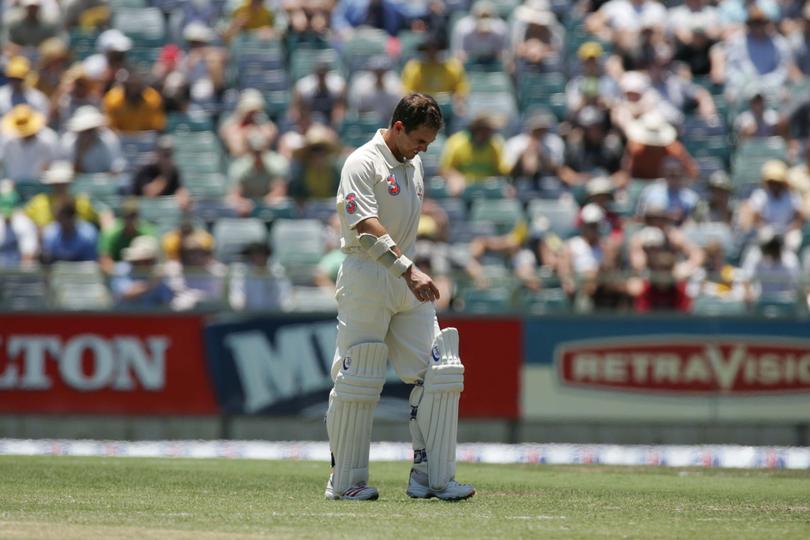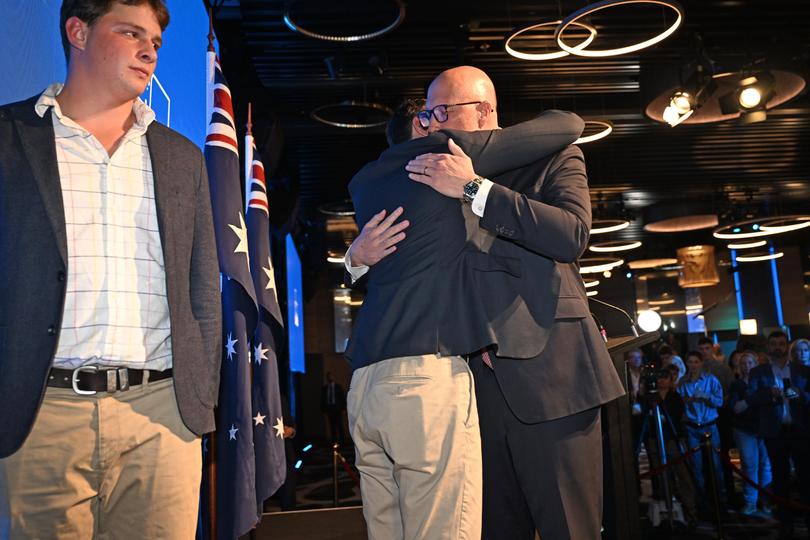JUSTIN LANGER: Peter Dutton will be going through range of emotions after losing the Federal Election
When the final votes are tallied and your opponent claims victory. When the siren sounds on a grand final defeat. When quarterly reports in a business reveal loss, or someone in your life passes away — the collective distress which follows is a choreography of grief as old as human disappointment itself.
Though the stages of politics, sport, business and life may wear different costumes, the dance of dealing with adversity remains remarkably similar.
The stages of grief are most associated with psychiatrist and author Elisabeth Kubler-Ross and are often connected to the toughest periods or events in our lives.
Sign up to The Nightly's newsletters.
Get the first look at the digital newspaper, curated daily stories and breaking headlines delivered to your inbox.
By continuing you agree to our Terms and Privacy Policy.Her model talks of five emotions. First there is denial, an initial period of shock and disbelief where the reality of the loss feels impossible to accept.
Then, as denial subsides, anger can set in, often directed at various targets, depending on your situation or environment.
Third comes bargaining, a phase marked by thoughts of “if only”, as we attempt to negotiate away the reality, often through promises made to oneself, others, or for some, a higher power.
Then there is the phase of depression — a period of deep sadness as the full impact of the loss settles in. This can involve withdrawal, intense sorrow, and questioning the purpose of moving forward
Finally, acceptance is the point, where we are not necessarily “OK” with what happened, but we start coming to terms with the new reality, allowing us to find ways to adapt to life after a loss.
Imagine being in the war room of the defeated Liberal Party last Sunday morning. Silence would have fallen over it like a funeral at a church.
The leader Peter Dutton would be reflecting, searching, agonising. Or maybe he knew before the event?
Campaign managers would be staring at projections they can no longer deny, while speech writers draft words no one wants to deliver.
Supporters feel the anguish, but nothing like those who have been in the day-to-day battle.
The first stage of grief would have begun as the colour red pulled away from its rival in blue. Denial wrapped in disbelief. What just happened? A landslide, the worst election result in the Liberal Party’s 84-year history. Greens leader Adam Bandt is likely to be on the same path.
When a government party loses power or remains in opposition, the controlled rage (anger) emerges through different channels.
Internal finger-pointing behind closed doors and public leaks emerge.
It’s anger, institutionalised and manoeuvred, often to save face or place the blame on others.
This is usually a horrible environment to be a part of.
After a period, the Liberals will start negotiating with reality. The bargaining stage will take on a particular potency, as they immediately begin calibrating for the next cycle by making internal promises about what they’d do differently — “if only” they had another chance. “Next time, we’ll focus on rural, female, young voters,” they whisper to themselves, while drafting invisible contracts with the future.
But then hope often turns to a form of depression as reality sets in. Policy dreams die, personal and collective visions of leading the country are extinguished as the peak of the mountain now seems a lifetime away.
When you are on the wrong side of winning, the most fascinating stage, acceptance, doesn’t always signal the end of grief, but it does reveal the unique resilience built into individuals and different institutional structures.
Until the Liberal Party truly accepts this electoral defeat they won’t be able to begin the painstaking work of rebuilding their connection to voters, analysing demographic shifts and developing new messages that acknowledge changed realities rather than denying them.
Strong leadership will be critical. Not only will a new vision be required, but the leader/s must stem the bleeding associated with blame and arse-saving. A team effort will be required. In times like these, this can be challenging, but it is absolutely necessary.

You may wonder why I am sounding like such an authority on how Peter Dutton and the Liberals must be feeling?
In sport, this is our life. Each week you are judged as a winner or a loser, according to the scoreboard. You get selected or dropped and you spend time in teams on the right or wrong side of the ledger.
So many times, I have sat in a changing room, as a player or a coach, after a grand final or big game loss.
With my teammates we have sat in our uniform long after the game has ended, heads bowed, trying to understand how the dream has just been shattered. Denial.
People react differently, throw clipboards, punch walls, swear, have heated post-game interviews or express annoyance with the opposition or umpires. In these times you see the best and worst of people. Pressure and loss uncovers character. Anger.
Then there’s the shallow promises. We will be better next time. It just wasn’t our day. Credit to the opposition. We will work harder. Plan better. La di da di da. Bargaining.
The next day you wake up and reality bites you like an angry dog. So close, yet so far. We worked so hard for this. That medal that I had seen hanging around my neck is hanging somewhere else. Jealousy, envy, disbelief, fatigue, hopelessness. Depression.
Great teams do fight back, as do great players. When the smoke subsides, they integrate the loss into their organisational story without being defined by it. They dismantle what doesn’t work while preserving their foundational strengths. Improvement is the theme. Leaders must step up. Acceptance.
In sport, we also feel it as an individual.
The first time I was sacked, the dance followed the same beat. In 1993 I was dropped from the Australian cricket team after five Test matches. When the phone call came, I was in complete denial. My stomach churned, my head felt light and my mouth dry, as my dream of playing for my country was blown to smithereens.
Then I became angry. The selectors were my enemies, as was the captain and my teammates of a week before. Analysing every scenario, simply added to the misery. Smiling was a chore; fighting was my instinct. Steam whistled from my ears; fire breathed from my eyes. Warfare was my response.

Through venting and reflecting, the bargaining began. How can I get better? What lessons did I learn? Where can I improve? How do I move forward?
With these questions came hope. That is until the darkness re-emerged.
As the Australian team landed in London that year, it smacked me in the face that I wasn’t there. With every Test match, every success story, my chances of playing again felt further and further away. The shame and indignity were sapping. Depression, whilst not diagnosed, was a heavy, tiring cloud.
Through friendship, mentorship, encouragement and a touch of perspective, I was able to accept my reality and turn the fire into fuel. This took time, but by accepting where I was at, I was able to forge a very clear path forward. Improvement was a non-negotiable, as was forgiveness.
The path forward meant I had to be so good I couldn’t be ignored by the selectors the next time around. Knocking on the door was feeble, I had to bang it so hard they would have to let me back in.
Training sessions of punishing intensity became the norm. My initial fury was replaced by physical exertion, transforming emotional energy into sweat. I learnt more about myself — and what I was willing to sacrifice and do — to earn back my spot back in the team. My dreams became clearer.
Had the path been smoother, I may never have reached the heights I was able to climb to. Through this time I found a peace that transformed me and today I am thankful for those tough times in my life and career.
Going through adversity is rarely enjoyable — as you can’t see past the end of your nose — but they are important periods of growth.
As the Liberal Party conducts its post-mortems and begins drafting new platforms, I can feel for those who have lost this race.
There will be a pause following their humbling defeat, but if they can absorb the unimaginable, calm the anger and face the harsh daylight that is about to dawn, they will be back in the race.
The shadow of grief is joy, and Prime Minister Anthony Albanese and the Labor Party will savour this victory.
That’s what a contest entails, winning and losing, and when you are on the right side of that, there is no better feeling.
